Business
Tax now accounts for 70% of Nigeria’s revenue – FIRS
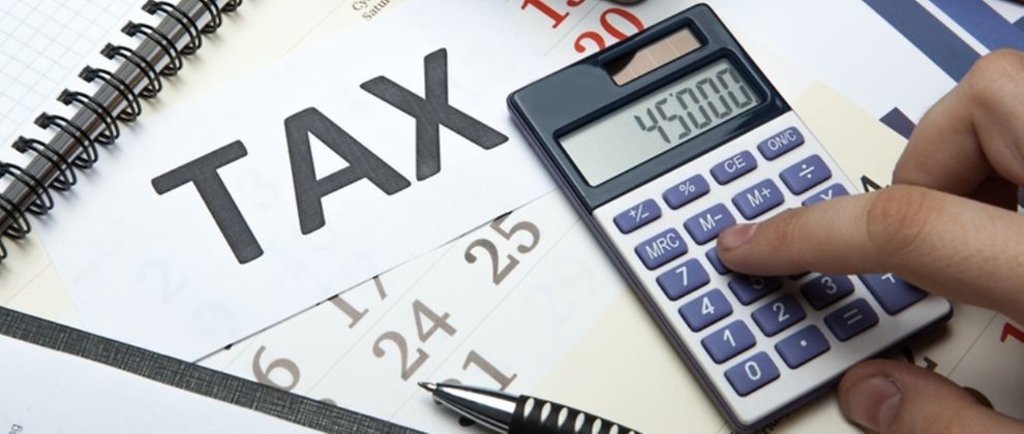
The Federal Inland Revenue Service (FIRS) has said receipts from tax now account for about 70 per cent of Nigeria’s total revenue.
The FIRS said other revenue lines, including oil, accounted for just 30 per cent of the country’s revenue.
Executive Chairman of FIRS, Muhammad Nami, disclosed this recently in Abuja when he made a presentation titled, “Weathering Economic Turbulence,” at an interactive session with stakeholders.
Nami called for the amendment of the country’s tax laws, saying most of them date back to pre-independence times.
He stressed that the country’s revenue situation was very dire, explaining that Nigeria has always relied on oil revenue for its budgetary needs, with little regard for revenue from tax.
He said the fall in oil prices, reduction of production quota, and oil theft had reduced the country’s revenue to critical levels.
The FIRS head revealed that the total Federation Account revenue for June 2020 was just N696 billion (about $2 billion), “which is equivalent to what a county in the United States spends.”
He said, “Nigerian economy is projected to contract by over five per cent in 2020 due to COVID-19 and other disruptions. Oil prices have plummeted (from $97.98 in 2012 to below $50 in 2020).”
He said despite efforts by the FIRS and Nigeria Customs Service (NCS) to drive up Value Added Tax (VAT) receipts, “Collection has indeed gone up, but Nigeria’s VAT gap remained at a pitiable 70 per cent, compared with South Africa at 12 per cent, Morocco at 28 per cent, and Zimbabwe at 38 per cent.”
Nami reiterated that Nigeria’s tax-to-Gross Domestic Product (GDP) ratio was currently about six per cent, compared to Egypt at 15 per cent, Ghana and Kenya at 17 per cent, and South Africa at 28 per cent.
The World Bank recommends a minimum of 15 per cent Tax to GDP ratio for economic growth and poverty reduction, he stated.
Nami stated, “A Debt Management Office (DMO) report indicates that about N1.21 trillion was used to service debt from January to June 2020.
“Over N3 trillion is proposed for debt servicing in 2021. The report further projects that Nigeria’s debt stock will grow significantly by end of 2020.
“God forbid that Nigeria should default in debt repayment obligations. Nigeria’s debt to revenue ratio is worsening – it is estimated at 538 per cent at the end of the fourth quarter, that is 190 per cent increase from 2019 figure (348%).”
Nami identified the problems of tax administration in the country to include the false belief that Nigeria is rich and does not require tax money, resistance to tax payment and tax being seen as an unnecessary burden, and lack of political action to tackle low level of tax payment.
He lamented that Nigeria was a mono-product economy and the whole economy revolved around crude oil. Thus, a slight change in oil price shakes the whole economy and jeopardises welfare, he said.
Nami stated that the widespread destructions that took place when the recent #ENDSARS protests were hijacked by hoodlums would have negative consequences for the country.
He said every effort should be made to improve domestic revenue mobilisation in view of the dwindling oil prices to prevent the country from falling into a debt crisis.
The FIRS boss said a debt crisis would exacerbate insecurity and political unrest in the country, and might also derail the programmes of the federal government.
In order to raise the country’s revenue performance, Nami charged all stakeholders with a clear political mandate to tackle low levels of tax payment and ensure simpler tax systems with limited number of rates and exemptions.
He suggested a reform of indirect taxes on goods and services, and called for the deployment of new technology and large data capabilities, and adoption of risk-based tax audits and examinations.
According to him, in response to the present revenue crunch, the FIRS has improved its administrative processes, carried out proper staff placement, restored staff-management relations, embarked on strategic capacity building for enhanced performance, and employed technology for improved service delivery
Similarly, the agency, Nami said, has disengaged its “Tax Audit Contractors,” decentralised tax audit and tax investigation functions, and enhanced stakeholder collaboration.
He said FIRS had also improved communication with taxpayers, made strategic moves to enhance revenue from indirect taxes, harmonised all tax provisions scattered in different laws, and restructured tax incentives for maximum benefit. He said the agency treated the issue of low tax payment as a national emergency deserving support from all stakeholders through political and legislative interventions.
Nami said FIRS had blocked tax loopholes and made more money available to the government.
-THISDAY
Business
TCAN Targets Logistics Reforms to Drive Economic Growth at 2026 Transport Summit
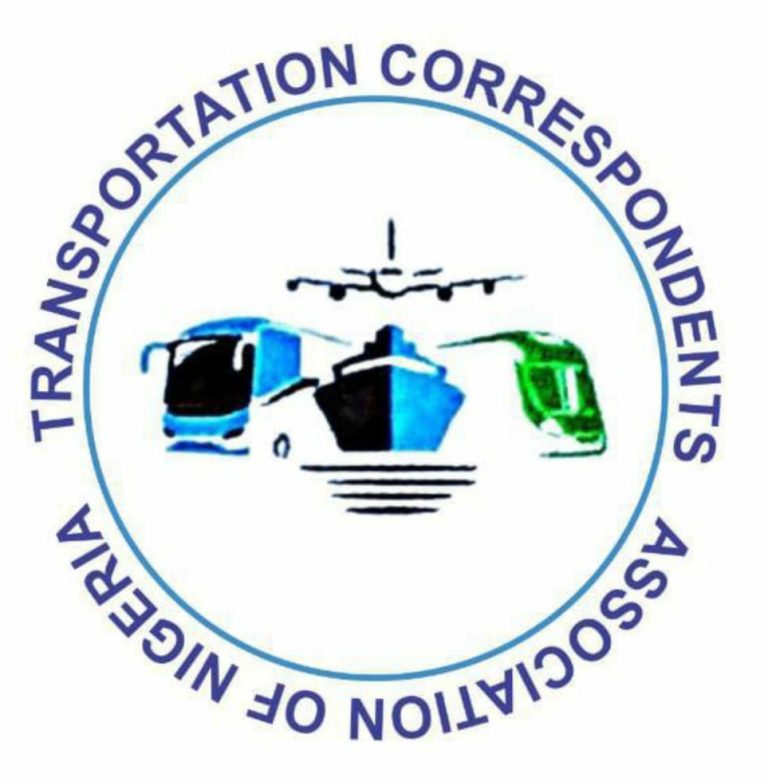
TCAN Targets Logistics Reforms to Drive Economic Growth at 2026 Transport Summit
The Transportation Correspondents Association of Nigeria (TCAN) has begun preparations for its 2026 Annual Transport Summit, placing Nigeria’s logistics value chain at the centre of national economic discourse.
Scheduled for September 2026 in Lagos, the summit will be held under the theme, “Unlocking Economic Growth Through Transportation Logistics.”
It is expected to draw major stakeholders across the aviation, maritime, rail and road transport sectors, alongside logistics service providers, policymakers, regulators, development partners and financial institutions.
In a statement, TCAN said the summit would critically examine how efficient transportation logistics can serve as a catalyst for sustainable economic growth, trade facilitation, job creation and regional integration, especially in the context of ongoing reforms and infrastructure investments within the sector.
Chairman of TCAN, Tola Adenubi, described transportation logistics as the backbone of economic development, stressing that the performance of Nigeria’s logistics ecosystem directly impacts the nation’s competitiveness.
“From cargo handling at airports and seaports to inland freight movement and last-mile delivery systems, the efficiency of Nigeria’s logistics architecture plays a decisive role in determining the competitiveness of the nation’s economy,” Adenubi said.
He noted that the 2026 summit would explore innovative strategies to strengthen the sector, including digital transformation, infrastructure financing models, public-private partnerships and regulatory reforms aimed at optimising performance.
Chairman of the 2026 Conference Committee, Suleiman Idris, said the summit would feature high-level panel discussions, keynote addresses and interactive sessions designed to assess the current state of Nigeria’s transportation logistics framework.
According to him, deliberations will focus on identifying bottlenecks hindering seamless cargo and passenger movement, examining the impact of multimodal transport integration on economic expansion, and highlighting investment opportunities within the logistics and supply chain ecosystem.
Idris added that experts at the summit would also provide policy recommendations targeted at enhancing operational efficiency and boosting Nigeria’s global competitiveness in trade and transportation.
As part of the programme, TCAN will confer its Champions of Transport Industry Development (COTID) certificates on selected government agencies and private operators that have made significant contributions to the advancement of Nigeria’s transportation sector.
Over the years, the TCAN Annual Transport Summit has evolved into a credible platform for constructive engagement between regulators, operators and other industry stakeholders.
The association said the 2026 edition aims to deepen policy conversations, promote transparency and accountability, and accelerate reforms capable of unlocking the full economic potential of Nigeria’s transport and logistics industry.
With logistics increasingly recognised as a key enabler of economic growth, industry observers expect the 2026 summit to set the tone for fresh strategies that could reshape Nigeria’s transportation landscape in the years ahead.
Business
Petrol Jumps to ₦937 in Lagos, ₦975 in Abuja Amid Middle East Oil Crisis

Petrol Jumps to ₦937 in Lagos, ₦975 in Abuja Amid Middle East Oil Crisis
Nigeria’s fuel market is under renewed strain as escalating tensions in the Middle East push global crude oil prices above $80 per barrel, driving domestic petrol prices toward the ₦1,000 per litre mark. Motorists across the country, from Lagos to Abuja, have woken to sharp increases at filling stations, with pump prices rising almost overnight.
In Lagos, several outlets raised the price of Premium Motor Spirit (PMS) from ₦830–₦835 per litre to ₦937, while in the Federal Capital Territory, major retailers including NNPC Limited and MRS Oil Nigeria Plc increased prices from ₦875 to ₦975 per litre. Independent marketers were dispensing fuel at about ₦960 per litre, reflecting the immediate effects of rising international oil prices.
The surge followed a fresh upward review in the ex-depot price by Dangote Petroleum Refinery & Petrochemicals, which moved its gantry price from ₦774 to approximately ₦874–₦875 per litre. Industry insiders linked the hike to rising replacement costs and the ongoing surge in crude prices. A senior refinery official confirmed that petrol loading operations were temporarily suspended earlier in the week, further tightening supply expectations and accelerating retail price adjustments.
READ ALSO:
- US Military Says It Has Struck Nearly 2,000 Targets in Iran as War Escalates
- FG Bans Roadblocks, Cash Tax Collection Nationwide
- Trade Row Looms as Trump Threatens Spain After Refusal to Support Iran Strikes
The Middle East conflict, particularly involving the United States, Israel, and Iran, has heightened fears of disruption around the Strait of Hormuz, a strategic maritime route responsible for nearly one-fifth of global crude supply. Analysts warn that prolonged instability in the corridor could push global oil prices to $100 per barrel or higher, with direct consequences for Nigeria’s cost-reflective petrol pricing system.
The Petroleum Products Retail Outlets Owners Association of Nigeria (PETROAN) described the situation as worrisome, noting that rising crude prices inevitably feed into domestic pump prices, given the current deregulated pricing regime. PETROAN’s National President, Mr Billy Gillis-Harry, emphasized the urgent need to strengthen Nigeria’s domestic refining capacity as a protective buffer. The association also called for consistent crude supply to local refineries and accelerated rehabilitation of the country’s four state-owned refineries to cushion the economy against external shocks.
For Nigerians, the impact has been immediate. Commercial drivers and commuters report that rising fuel costs are forcing them to adjust transport fares, adding pressure to household budgets. “I bought fuel yesterday at ₦875, and this morning it is ₦975. Every increase affects us directly. If we don’t raise fares, we run at a loss,” said Mr. Chinedu Okeke, a driver in Abuja.
Commuters fear the ripple effect of higher petrol costs on everyday goods. “If fuel is almost ₦1,000 per litre, it means fares and prices of essentials will rise. Things are becoming unbearable,” said Mrs. Aisha Ladan, a civil servant in the capital city. Analysts warn that increased transport costs could widen inflationary pressures, as businesses pass on higher operational expenses to consumers.
The psychological impact of petrol nearing the four-digit mark is also significant. For many Nigerians, it represents another milestone in a period already marked by subsidy removal, currency volatility, and persistent price adjustments. Unless global energy markets stabilize or domestic refining capacity is expanded, petrol prices in Nigeria may soon cross ₦1,000 per litre, with broad implications for the economy.
Petrol Jumps to ₦937 in Lagos, ₦975 in Abuja Amid Middle East Oil Crisis
Business
FG Bans Roadblocks, Cash Tax Collection Nationwide

FG Bans Roadblocks, Cash Tax Collection Nationwide
The Federal Government of Nigeria has officially banned the mounting of roadblocks and the collection of taxes in cash nationwide, in a decisive move to modernise the country’s tax system, enhance transparency, and streamline revenue collection across federal, state, and local governments.
The announcement was made in Abuja by Mr Olusegun Adesokan, Executive Secretary of the Joint Revenue Board, during the signing of the Presumptive Tax Regulations and Implementation Guidelines. Adesokan said the new rules are designed to eliminate informal, coercive, and fragmented tax practices, particularly in the informal sector, and promote fairness and equity in tax administration.
“All forms of cash tax collection by authorities are now prohibited, alongside the use of roadblocks for revenue enforcement,” Adesokan explained, stressing that these reforms signal a nationwide shift toward technology-driven tax collection systems.
READ ALSO:
- Trade Row Looms as Trump Threatens Spain After Refusal to Support Iran Strikes
- UK, France Deploy Warships, Anti‑Drone Helicopters to Cyprus After RAF Akrotiri Strike
- NRC Expands Abuja–Kaduna Train Service with Additional Trips
Under the regulations, nano and small businesses with an annual turnover of ₦12 million or less are exempt from taxation, while other informal businesses are subject to a 1% tax on turnover. The reforms encourage the use of digital payments and the integration of operators into the formal economy through a Tax Identification Number (TIN) platform, ensuring uniform tax administration across states.
The Minister of Finance and Coordinating Minister of the Economy, Wale Edun, described the move as a shift from legislative approval of Nigeria’s 2025–2026 tax reforms to full implementation. Edun emphasised that the framework does not raise tax rates but broadens the tax base, prevents arbitrary assessments, protects small businesses, and supports economic growth.
Mr Joseph Tegbe, Chairman of the National Tax Policy Implementation Committee, said the reforms aim to restore order and replace arbitrary practices with transparency. He highlighted that the informal sector employs over 80% of Nigeria’s workforce, yet its contribution to structured public revenue remains low. The guidelines are intended to encourage compliance while strengthening revenue mobilisation for public services.
The ban on roadblocks, a longstanding method for informal tax enforcement, is expected to reduce harassment of traders and motorists, improve ease of doing business, and foster trust in government tax authorities. Observers say the shift to cashless, digital tax collection will curb corruption, enhance efficiency, and integrate informal operators into the formal economy.
FG Bans Roadblocks, Cash Tax Collection Nationwide
-

 metro3 days ago
metro3 days agoHajj, Umrah Are for Muslims Only – Scholar Urges NAHCON to Tighten Screening
-

 International2 days ago
International2 days agoIran Retaliates: Gulf States Allied With US Hit by Missiles, Drones
-

 International2 days ago
International2 days agoSaudi Arabia Denies Lobbying US to Strike Iran as Gulf States Respond to Escalation
-

 International2 days ago
International2 days agoSeveral U.S. Warplanes Crash in Kuwait Amid Ongoing Iranian Strikes
-

 metro2 days ago
metro2 days agoDaddy Freeze Warns Couples Over 40: ‘Avoid Moving Abroad, Especially US, UK’
-

 metro3 days ago
metro3 days agoFour Die in Katsina Stampede During Ramadan Alms Distribution
-
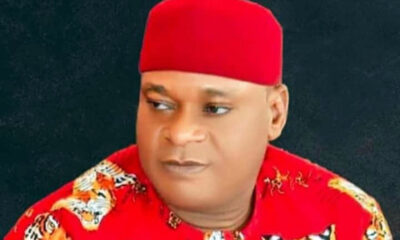
 metro3 days ago
metro3 days agoGunmen Abduct Father of Former Ebonyi Deputy Governor on Way to Church
-

 Business3 days ago
Business3 days agoGlobal Crude Hits $73 as Middle East Tensions Escalate



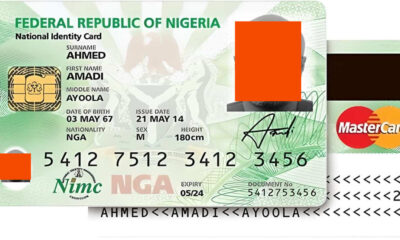

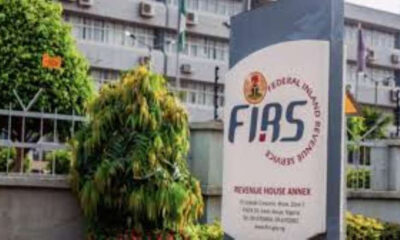



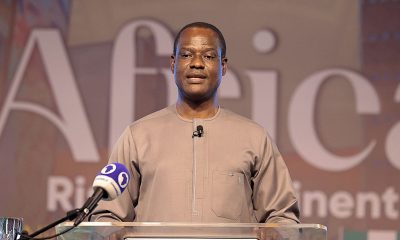



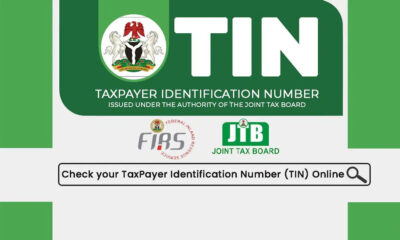


You must be logged in to post a comment Login